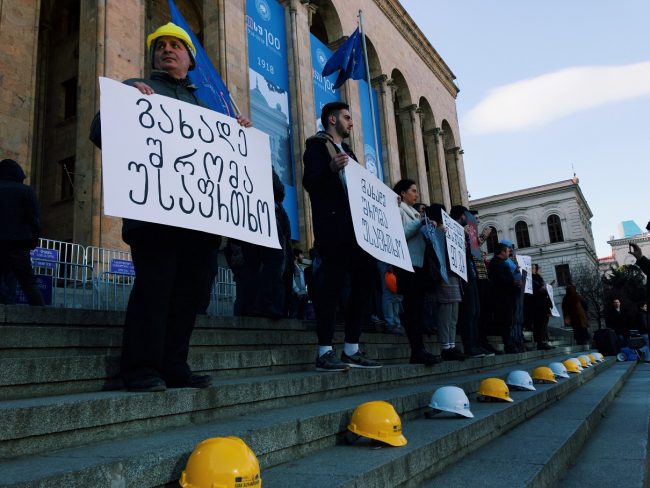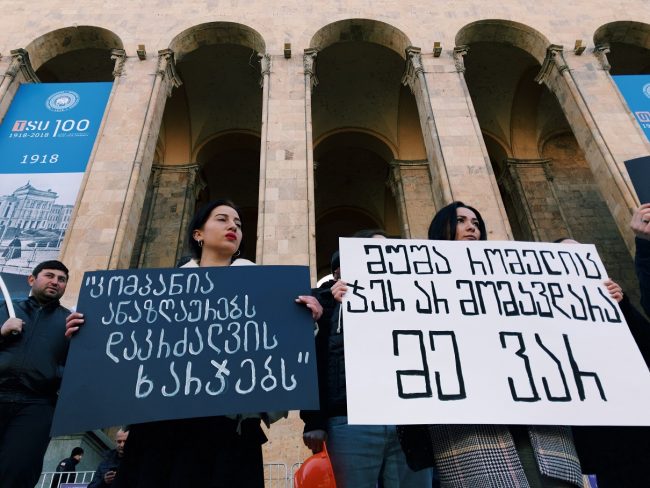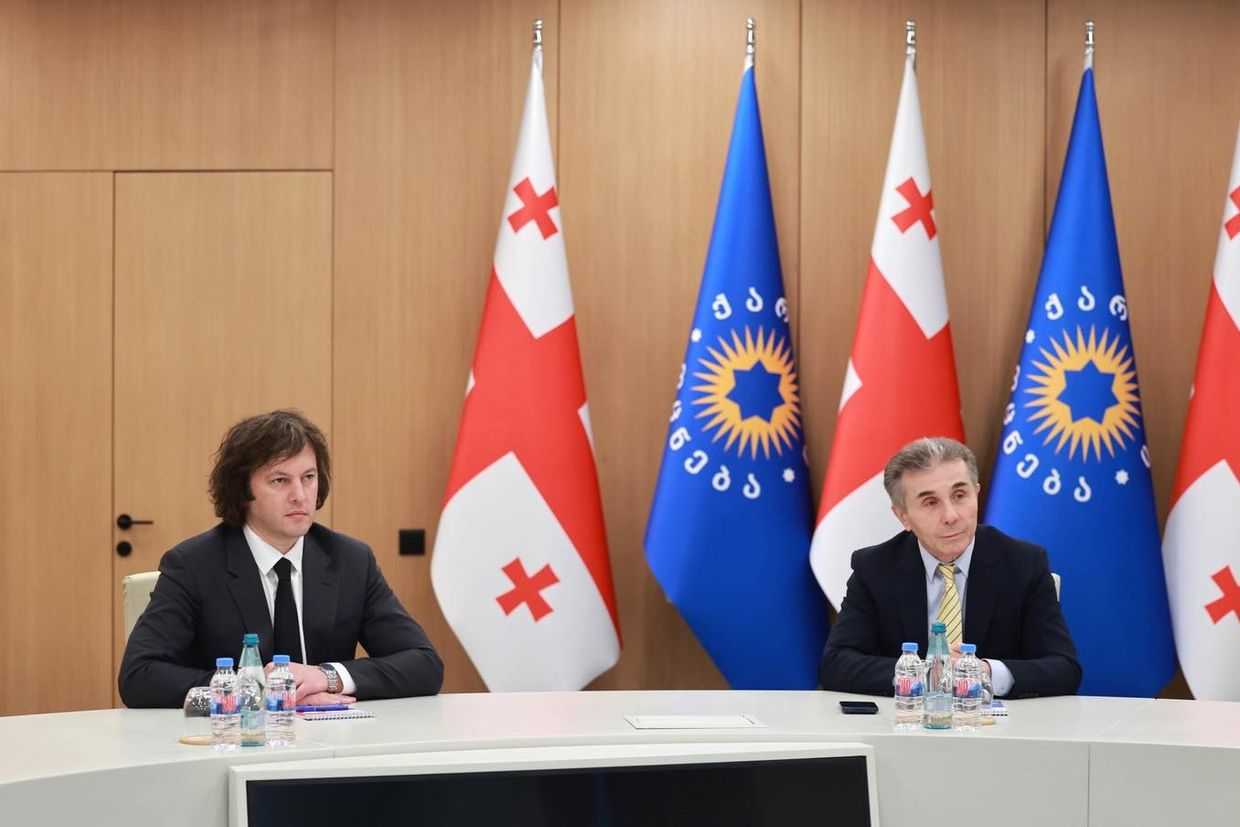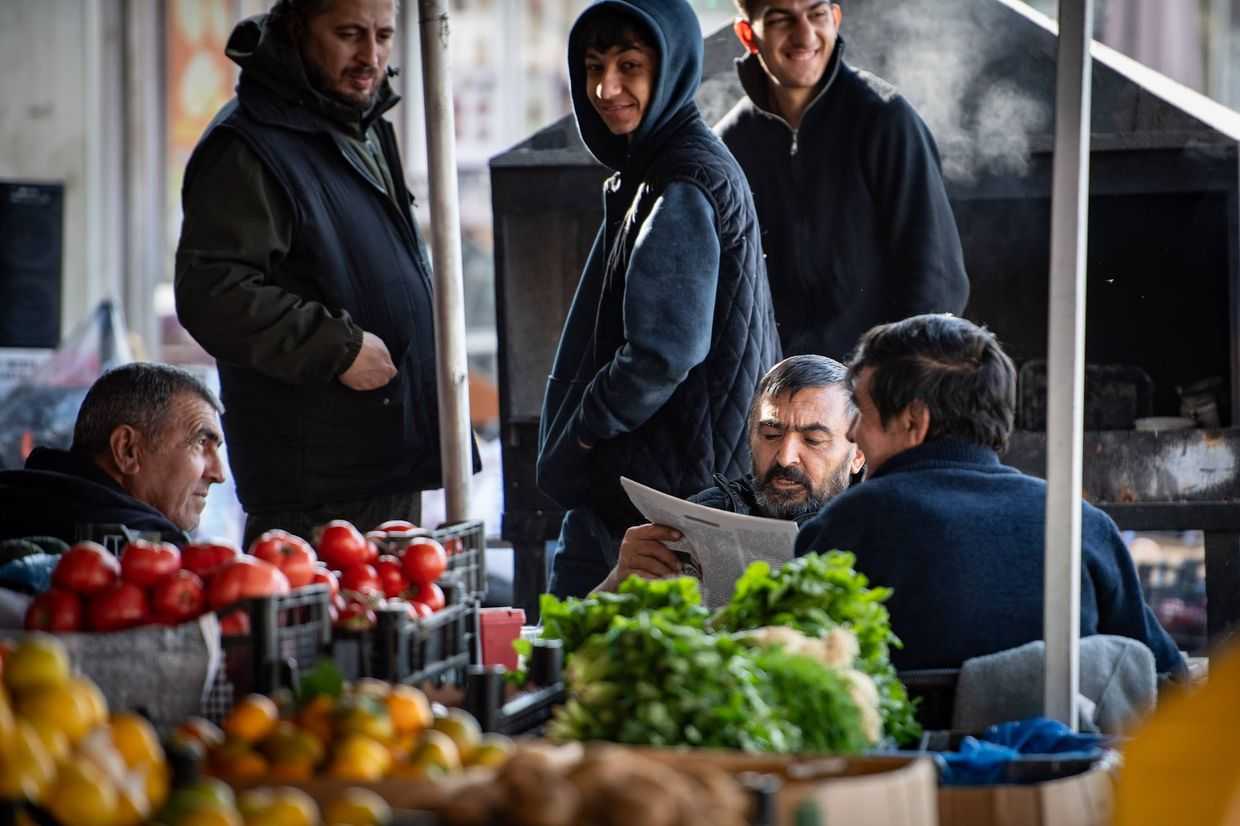

 Parliamentary hearings for a controversial new labour law has been postponed by at least a week. Trade unions and rights groups have criticised the delay, calling on the government to act quickly to toughen labour safety rules.
Parliamentary hearings for a controversial new labour law has been postponed by at least a week. Trade unions and rights groups have criticised the delay, calling on the government to act quickly to toughen labour safety rules.
The original version of the bill presented to Parliament last June would have allowed the authorities to issue warnings, fines, or shut down companies for violating safety rules. However labour rights groups have accused the government of since watering down the law, criticising the latest draft for not being tough enough.
Dozens gathered in front of the parliament building in Tbilisi on 5 February calling on the Committee of Social Issues to enforce stricter rules on employers.
The organisers of the protest, the Georgian Trade Unions Confederation (GTUC), the biggest independent trade union in the country, pointed out that since labour inspections were abolished in the mid-2000s, more than 480 workers have died and more than 800 have been injured as a result of occupation accidents.
[Read on OC Media: Opinion | Georgia’s labour reforms do little to fix the country’s deadly workplaces]
Parliament has ‘changed core principles of the initiative’
The bill passed the first parliamentary hearing in early November, but progress has since stalled. It still needs to pass the second and the final, hearings before coming into force.
The sitting of the Committee on Social Issues, planned for 5 February, was postponed after the Ministry of Economy asked for an additional week for ‘internal consultations’, according to Lina Ghvinianidze, head of the Social Rights Programme at the Human Rights Education and Monitoring Centre (EMC), a Tbilisi-based rights group who have been advocating for stricter labour safety rules.
EMC said in a statement in December 2017 they were ‘disappointed’ with parliament’s decision to ‘procrastinate’ over adoption of the law.
According to them, parliament has ‘changed core principles of the initiative’. EMC, who have been participating in the committee hearings on the draft law, claimed the original version, despite a number of flaws, had been ‘positively evaluated’ by civil society groups.
But they say that in later committee sessions, ‘representatives of the Ministry of Economy and Sustainable Development questioned the basic principles of sanctioning companies, which had been agreed on months ago’.
The GTUC criticised a number of ‘major flaws’ in the bill, including its ‘limited scope’, in a press-release on 5 February.
Parliamentary Chair Irakli Kobakhidze confirmed on 5 February that the draft law referred to labour safety issues only ‘during severe, harmful and hazardous work’. According to Kobakhidze, ‘these are the fields of labour activities in which the situation is critical and the state needs to immediately interfere’.

EMC say the bill ‘excludes workers who do not fall into the list of work approved by the government, making unjustified differentiation of employees and putting them in unequal conditions’.
Kobakhidze said that establishing ‘high standards of labour safety, continuously monitoring how they are protected, and the further improvement of labour standards, is Georgia’s international commitment under the Association Agreement with the European Union’.
He added that establishing high standards of labour safety ‘should be directed towards defending the rights of employees and the interests of employers’, calling on employers to participate in drafting the law.
Tamaz Dolaberidze, the deputy head of the GTUC, said during the demonstration that Kobakhidze’s statement was ‘an invitation for corporations to voice their interests in response to workers’ and unionists’ demands’.
The draft law has also faced criticism from labour rights groups for not providing labour inspectors with unconditional access to to workplaces, which they say would prevent them from properly carrying out their job.









